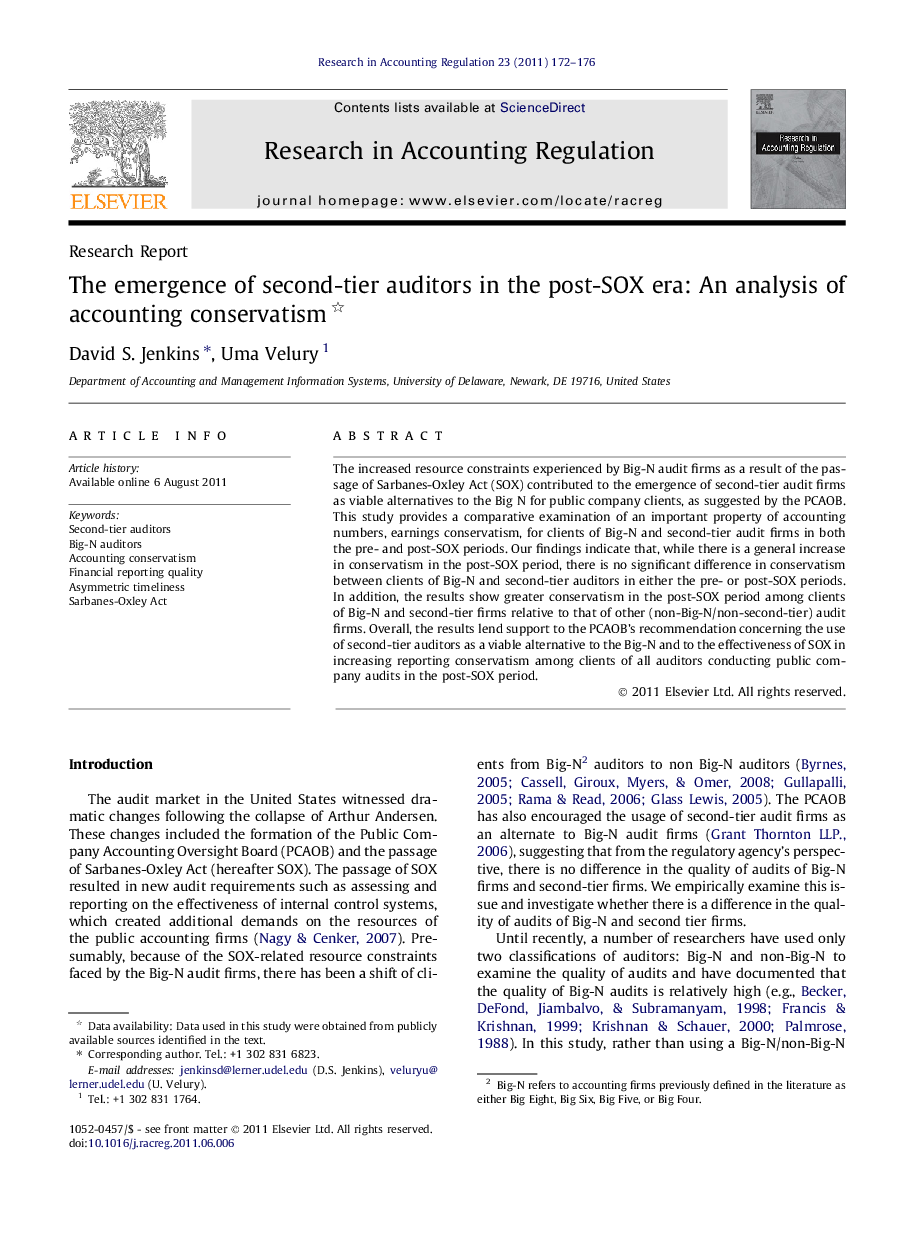| Article ID | Journal | Published Year | Pages | File Type |
|---|---|---|---|---|
| 1006691 | Research in Accounting Regulation | 2011 | 5 Pages |
The increased resource constraints experienced by Big-N audit firms as a result of the passage of Sarbanes-Oxley Act (SOX) contributed to the emergence of second-tier audit firms as viable alternatives to the Big N for public company clients, as suggested by the PCAOB. This study provides a comparative examination of an important property of accounting numbers, earnings conservatism, for clients of Big-N and second-tier audit firms in both the pre- and post-SOX periods. Our findings indicate that, while there is a general increase in conservatism in the post-SOX period, there is no significant difference in conservatism between clients of Big-N and second-tier auditors in either the pre- or post-SOX periods. In addition, the results show greater conservatism in the post-SOX period among clients of Big-N and second-tier firms relative to that of other (non-Big-N/non-second-tier) audit firms. Overall, the results lend support to the PCAOB’s recommendation concerning the use of second-tier auditors as a viable alternative to the Big-N and to the effectiveness of SOX in increasing reporting conservatism among clients of all auditors conducting public company audits in the post-SOX period.
